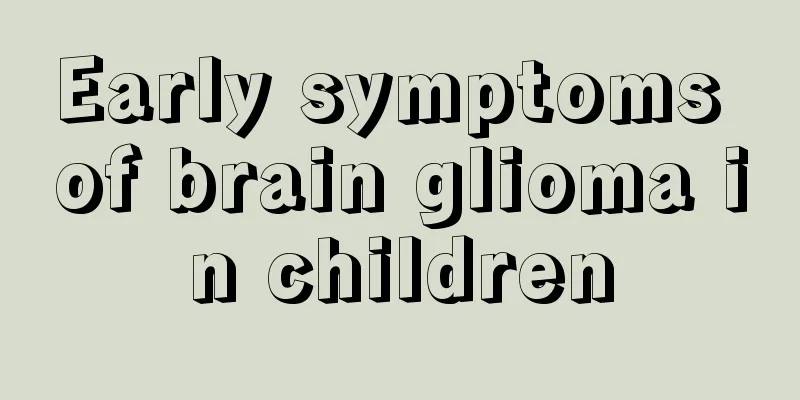Early symptoms of nasopharyngeal carcinoma

|
In life, we should pay attention to the occurrence of nasopharyngeal cancer. When this disease occurs, the harm is very great. We should pay attention to the diagnosis and care to avoid affecting the body. We should also pay attention to some symptoms and care methods. So, what are the symptoms of nasopharyngeal cancer? The early symptoms of nasopharyngeal carcinoma are summarized as follows: 1. Blood in the nose: Blood in the nose is an early symptom of nasopharyngeal carcinoma, which manifests as blood in the nasal mucus, or blood in the nasal mucus sucked back from the mouth, also known as respiration blood in the nose. Blood in the nose often occurs after getting up in the morning. When the amount of blood in the nose is not large, it is often neglected by patients and mistaken for rhinitis or sinusitis, or is treated as hemoptysis in the internal medicine department. 2. Headache: When nasopharyngeal carcinoma is first diagnosed, about 70% of patients have headache symptoms. The headache symptoms of nasopharyngeal carcinoma often manifest as migraine, pain in the back of the skull or neck. Nasopharyngeal carcinoma headaches are mostly related to cancer tissue invading the skull base bones, nerves and blood vessels. 3. Nasal congestion: Nasal congestion is another early manifestation of nasopharyngeal carcinoma. Most cases are unilateral. When the nasopharyngeal tumor grows, bilateral nasal congestion may occur. This is one of the early symptoms of nasopharyngeal carcinoma. 4. Tinnitus and hearing loss: Tinnitus, stuffy ears and hearing loss are also early signs of nasopharyngeal carcinoma. This symptom is caused by the nasopharyngeal carcinoma neoplasm blocking the Eustachian tube opening on the affected side. Hearing loss may also be caused by further deterioration of nasopharyngeal carcinoma and damage to the auditory nerve. Tinnitus and hearing loss are often misdiagnosed as otitis media or other diseases, which delays treatment. 5. Neck mass: Many nasopharyngeal cancer patients often seek medical attention because they accidentally feel a "lump" on their neck. This "lump" is actually an enlarged lymph node. The swollen lymph nodes in the neck of nasopharyngeal cancer patients are often misdiagnosed as inflammation. For neck masses that do not shrink after anti-inflammatory treatment or even continue to grow rapidly, especially those that are hard, have poor mobility, and are painless and fused together, you need to seek medical attention in time. If you suffer from this disease, you must pay attention to the symptoms, take care of your body reasonably, and pay attention to the conditioning methods. You should pay attention to more rest, take care of yourself reasonably, pay attention to the diet plan, and do a good job of daily care. Only in this way can you recover from the disease faster. |
<<: What are the complications of late stage nasopharyngeal carcinoma?
>>: Can multiple bone metastases of nasopharyngeal carcinoma be cured?
Recommend
Dull pain on the left side of the sternum
If you feel a dull pain on the left side of your ...
What are the manifestations of diffuse interstitial lung disease
You may not know much about diffuse interstitial ...
The hazards of frame glasses
In today's modern society, the number of myop...
What is the purpose of wearing pig bones
Many people may not understand the use of wearing...
What is ca hormone? Is there any relationship between ca hormone and the six hormone items?
In many disease test reports, there are indicator...
How to perm your hair at home
Many people choose to have a beautiful and handso...
How to use vinegar to soak your feet correctly
Soaking feet in vinegar can effectively relieve p...
Is congenital bile duct cyst scary?
Congenital choledochal cyst is a congenital malfo...
How to treat gallbladder adenoma
In our daily life, the common gallbladder adenoma...
What to do if your jaw is often dislocated
When the human body dislocates the jaw for the fi...
What examinations do liver cancer patients need to do? This examination has become an important diagnostic method for liver cancer
Liver cancer refers to malignant tumors that occu...
Traditional Chinese Medicine Hospital after ovarian cancer surgery
Traditional Chinese medicine plays a very importa...
Which hospital is good at treating melanoma
Melanoma, also known as malignant melanoma, is a ...
Can proteinuria in children be cured?
When children have kidney disease, they are prone...
Brief description: Common symptoms of malignant lymphoma
Clinically, the symptoms of malignant lymphoma ar...









